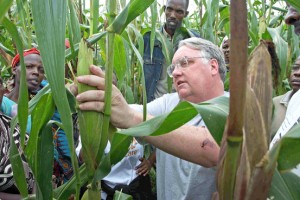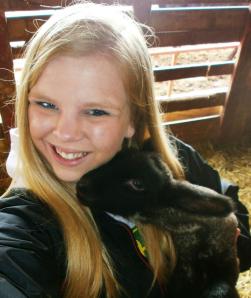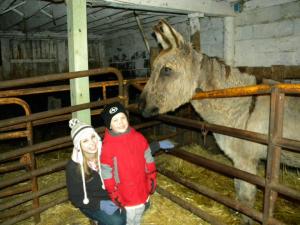I was on the phone with my mom last night and when she asked what my plans were for the evening I told her I had a Collegiate Farm Bureau meeting. Tonight I had a College of Agriculture and Life Sciences (CALS) Ambassador meeting and tomorrow evening I will be attending a planning meeting with other students to prepare a presentation for the Farm and Industry Short Course students. My mom asked me if I was okay, if I was tired and worn out, “You are always at meetings. Don’t push yourself.”
Mom, thank you for your concern; it means the world to me, but I want you to know that I am blessed. I’ve been blessed with the ability and talent to contribute and blessed beyond belief with the people I get to work with on a daily basis. I am stressed and I do push myself and you aren’t the first person to tell me that I am always at meetings, I am overly involved and that I shouldn’t commit to too much. It is okay though, because I love the people I get to work with, people I have met in the industry and people who continue to influence me and have a positive impact on my life.
The people are what make the agriculture industry and encourage me to stay active, motivate me to do more and help me to succeed. I love you, Mom, and thank you, but just remember that you and Dad raised me to be committed, active and involved, to use my talents and to make the world a better place. I try to do all of those things and look forward to leaving my own footprint on the industry.
After my meeting last night I was able to participate in the last hour of #foodchat. The second reason I am thankful to be involved in agriculture is because the people in this industry have a passion for what they do. Farmers have a passion for the outdoors and compassion for the livestock that feed and clothe us. Over the last few years social media presence has grown to the volume where we can have conversations with people around the US and across the world about agriculture nearly every week with #agchat and #foodchat on twitter. I am thankful for the passion that is shared through these social media conversations.
Between my tweets, I tuned in to the last half hour of the Food Dialogue chat going on in Iowa last night. I am thankful to be involved in an industry that makes a difference. Without agriculture people would be both naked and hungry.
As thanksgiving approaches and the end of the College Aggies Contest is right around the corner, I reflect on the things I am thankful for and the impact that the agriculture industry has had on me.
So why am I thankful to be involved in agriculture? It is the people, the passion and the importance of what we do. We feed and clothe the world. Without farmers, producers, processors and all of the millions of people that contribute to agriculture our world would be a pretty tough place to live.
Happy Thanksgiving! Be sure to thank a farmer or agriculturalist for their commitment to feeding and clothing the world.



